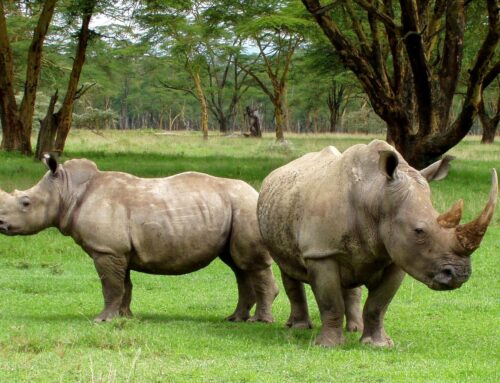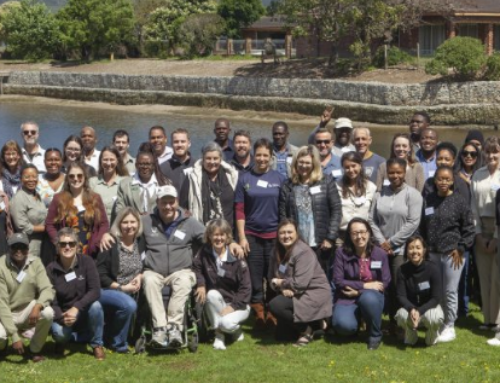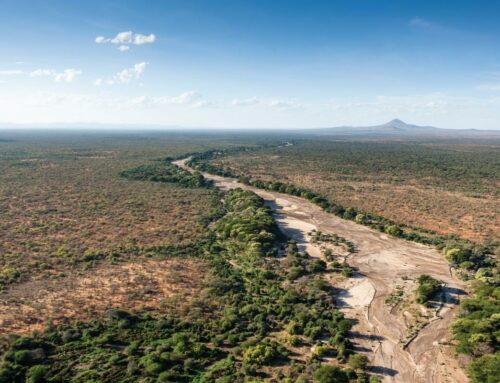PhD scholarship on environmental justice aspects in nature conservation in an African context (case studies in Tanzania and Zambia)?
The call can be found here: https://www.leuphana.de/news/
Application deadline is already the 8th of December.
Leuphana University of Lüneburg, foundation under public law, fosters the development of junior scientific staff. Therefore, the university offers one doctoral scholarship funded by the Robert Bosch foundation in the field of Sustainability Science with a focus on Environmental Justice at the faculty of Sustainability Science, starting in April 2020 for the summer term 2020.
The invitation to apply for a scholarship is targeted at extraordinarily qualified young academics with an interest in the above-mentioned research field or in a related discipline. The scholarships will first be awarded for one year and will be extended upon request, adding up to a maximum of three years as a rule. Periods with alternative financial support prior to the scholarship will be taken into account. No scholarship may be awarded to candidates who have already earned a doctoral degree. The scholarship is worth € 1,400 monthly net (plus child benefit, if appropriate).
In addition, the scholarship entails continuous and active participation in the qualification program and the research colloquium. Throughout the period of the scholarship, the prospective candidate will be expected to have his or her place of residence in Lüneburg and to undertake field research in Tanzania and Zambia. The anticipated duration of fieldwork will be approximately 9 months in total.
As part of a team of four persons, the doctoral student will focus on governance and social justice outcomes in African protected areas. The research is embedded into the five-year interdisciplinary research project “Wildlife, Values, Justice: Reconciling sustainability in African protected areas”, funded by the Robert Bosch foundation. The aim of the project is to investigate the reciprocal influences of social and ecological system conditions by i) considering procedural justice in the governance of protected areas, distributive justice of the ecological goods and services derived from protected areas and the underlying value system that shapes the attitude of justice towards nature; ii) explore biodiversity outcomes by considering large mammals, butterflies and landscape connectivity. As an outcome, the project will advance a holistic understanding of protected as arenas to navigate social-ecological dynamics towards resilience and sustainability.
The specific tasks of the doctoral student will be to a) undertake a stakeholder identification and examine the social and governance network in two protected areas and their surroundings: b) investigate the range and distribution of the costs and benefits related to protected areas; c) assess the diversity of values, knowledge and rules related to ecosystem services and their governance, which shape the human-nature relationships at different spatial scales. The doctoral candidate will closely collaborate with another doctoral student who will be investigating ecological outcomes of conservation interventions. The cumulative dissertation will represent a series of at least three manuscripts that ideally lead to internationally published journal articles that undergo peer review.
In addition, the scholarship entails enrolment on the doctoral programme at Leuphana University of Lüneburg as well as continuous and active participation in the programme of study. Therefore, having been awarded the scholarship, awardees must submit an extra application for admission to the doctoral programme to student services. Please find the application form and the relevant details about admission requirements here .
Expectations towards the future doctoral students are:
– Master´s degree (GPA of 2.5 or better) in social sustainability science or a relevant discipline
– Proven understanding of governance concepts and frameworks
– Experience in qualitative and quantitative data analyses
– Willingness to learn new techniques for data collection (eg. participatory mapping, photo elucidations)
– Documented experience with stakeholder identification and stakeholder engagement
– Skills in social data collection approaches (Interviews, questionnaires, focus groups)
– Knowledge on justice frameworks in international and national agendas
– Proven ability to work in a team and independently under challenging circumstances
– Willingness to live and work for prolonged periods under simple conditions in rural areas in tropical Africa
– Ideally, knowledge of a local language from Tanzania and/ or Zambia
– Advanced English writing skills
– Ability to organize, stamina and self-motivation
– Driver´s licence
For further information about the scholarship, applicants are welcome to contact Prof. Dr. Jacqueline Loos (loos@leuphana.de ).
Please send your application as a pdf document (only one attachment including all enclosures) marked “WVJ: Justice” via electronic mail, including the following documents:
— Motivation letter of approx. 2 pages
— CV including your previous research activities and study courses
— Documentary proof of a Master´s degree earned at a German academic institution or any equivalent qualification
— Relevant certificates regarding the academic qualification and successfully completed academic examinations
— Publication list
— Please note: All relevant university degree certificates and transcripts of record attached to your application have to be submitted in German or English.
Address for scholarship applications:
Email: gruenewald@leuphana.de












